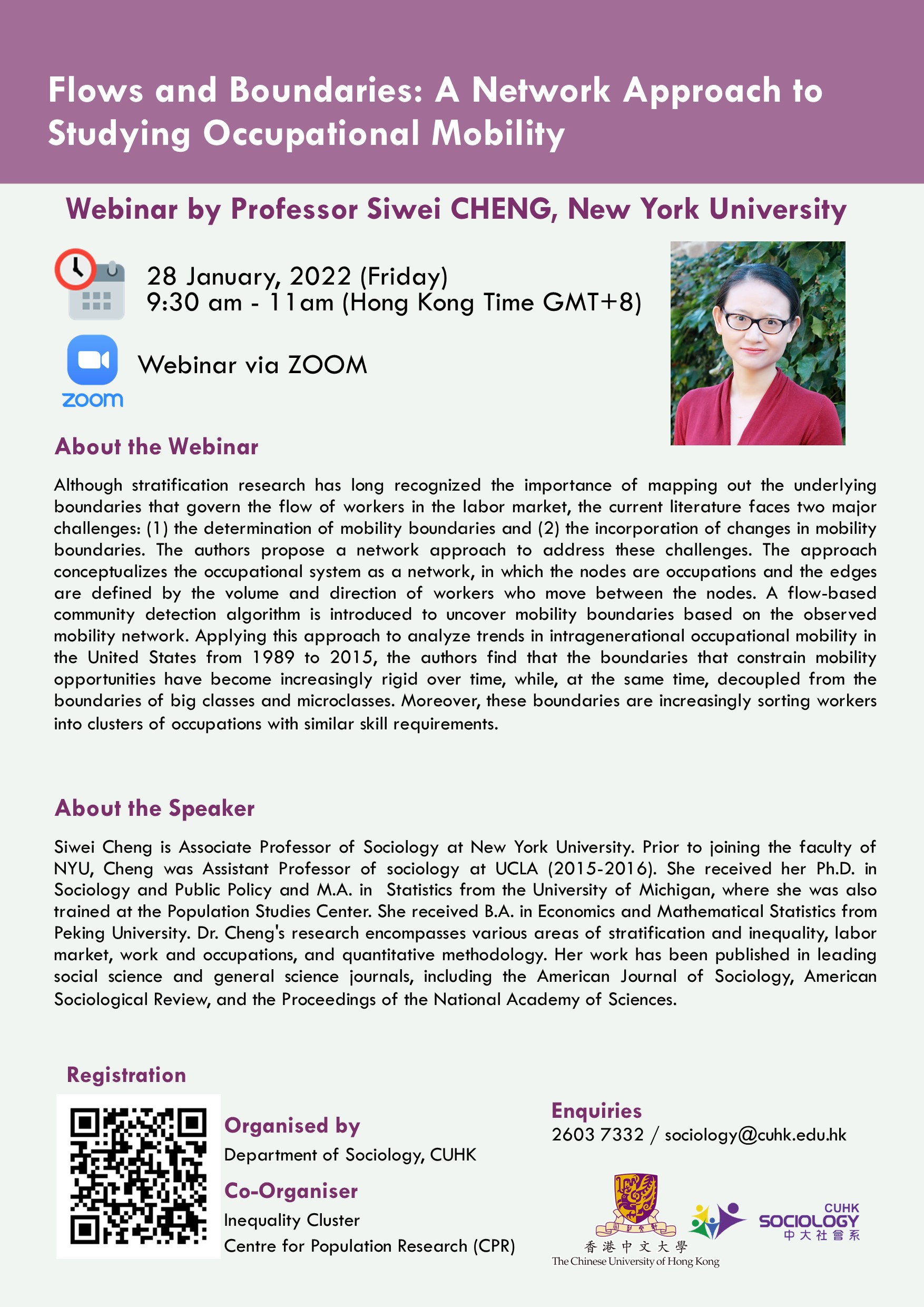
sociology@cuhk.edu.hk
About the Webinar
Although stratification research has long recognized the importance of mapping out the underlying boundaries that govern the flow of workers in the labor market, the current literature faces two major challenges: (1) the determination of mobility boundaries and (2) the incorporation of changes in mobility boundaries. The authors propose a network approach to address these challenges. The approach conceptualizes the occupational system as a network, in which the nodes are occupations and the edges are defined by the volume and direction of workers who move between the nodes. A flow-based community detection algorithm is introduced to uncover mobility boundaries based on the observed mobility network. Applying this approach to analyze trends in intragenerational occupational mobility in the United States from 1989 to 2015, the authors find that the boundaries that constrain mobility opportunities have become increasingly rigid over time, while, at the same time, decoupled from the boundaries of big classes and microclasses. Moreover, these boundaries are increasingly sorting workers into clusters of occupations with similar skill requirements.
About the Speaker
Siwei Cheng is Associate Professor of Sociology at New York University. Prior to joining the faculty of NYU, Cheng was Assistant Professor of sociology at UCLA (2015-2016). She received her Ph.D. in Sociology and Public Policy and M.A. in Statistics from the University of Michigan, where she was also trained at the Population Studies Center. She received B.A. in Economics and Mathematical Statistics from Peking University. Dr Cheng’s research encompasses various areas of stratification and inequality, labor market, work and occupations, and quantitative methodology. Her work has been published in leading social science and general science journals, including the American Journal of Sociology, American Sociological Review, and the Proceedings of the National Academy of Sciences.

